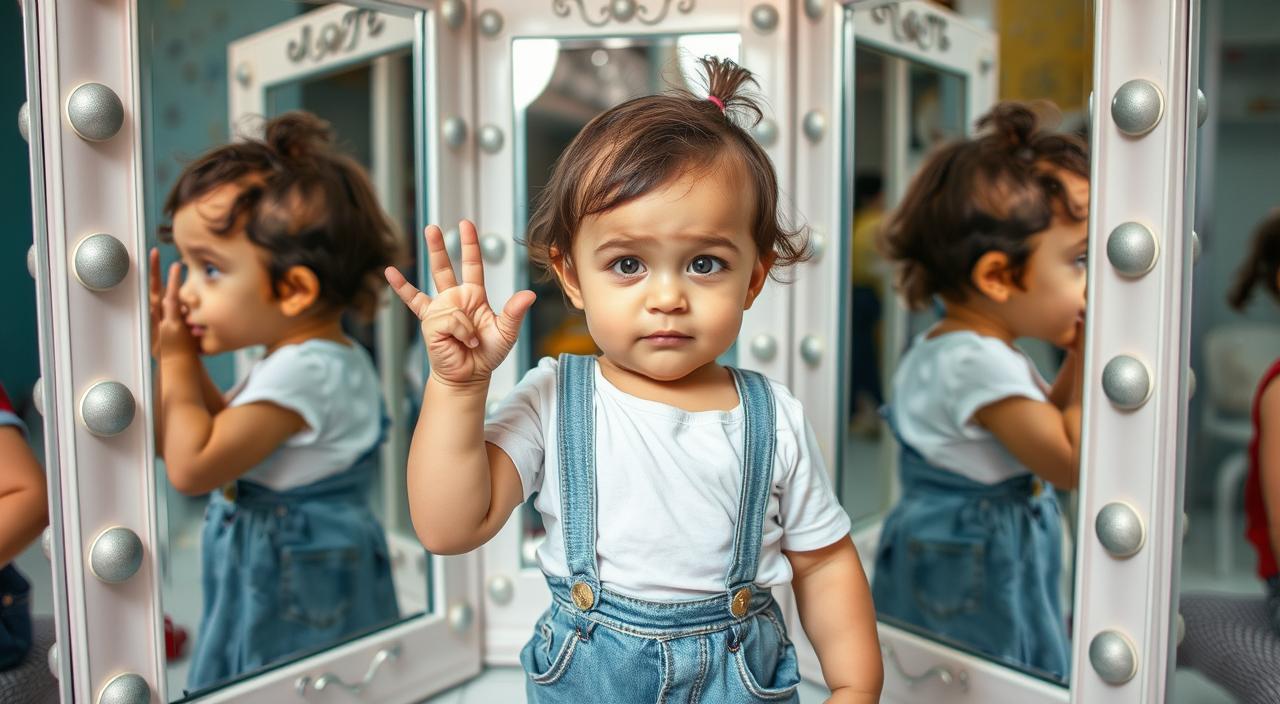In the complex world of human relationships, a key question stands out: Can a narcissist truly love their child? As a professional psychologist, I’ve looked deeply into this topic. I’ve challenged the usual beliefs and shown the real sides of narcissistic parenting. Let’s explore the complex relationship between narcissists and their children. We’ll see how it affects the children’s lives. Let’s discuss can a narcissist love their child?
Key Takeaways
- Narcissistic Personality Disorder (NPD) can deeply affect a parent’s ability to love and care for their child.
- Narcissistic parents show behaviors that can emotionally hurt their children.
- Whether a narcissist can truly love is a complex and debated topic.
- Children of narcissistic parents may face emotional and psychological challenges.
- It’s important to recognize and deal with the effects of narcissistic parenting for healing and growth.
Understanding Narcissistic Personality Disorder
To understand how narcissistic parents can love their children, we need to look at the core traits of Narcissistic Personality Disorder (NPD). This condition is known for a grandiose sense of self, a lack of empathy, and a constant need for validation and admiration.
Defining the Core Traits of Narcissism
People with NPD show many traits that deeply affect their relationships. They believe they are very important, dream of success and power, and think they deserve special treatment. They also lack empathy, using others to meet their needs without caring for others’ feelings or well-being.
The Impact of NPD on Interpersonal Relationships
Narcissistic traits from Narcissistic Personality Disorder harm an individual’s ability to have healthy relationships. Narcissists find it hard to form deep emotional bonds. They see others as a way to get admiration or validation. This leads to unstable and difficult relationships, with the narcissist acting manipulative or controlling to keep power.
“Narcissists have an insatiable appetite for attention, adoration, and admiration. They are often charming and charismatic, but their relationships tend to be superficial and lacking in true intimacy.”
Knowing the core traits of narcissism and its effects on relationships helps us understand narcissistic parents’ capacity for love. It also shows the challenges they face in building a healthy bond with their kids.
Narcissistic Parents: A Unique Challenge
Dealing with narcissistic parents is tough. They often put their own needs before their children’s. This makes it hard for kids to grow up in such an environment.
Narcissistic parents lack empathy. They need admiration and control. This means they don’t see or respond to their child’s feelings. This can hurt a child’s self-esteem and how they connect with others later.
- Manipulation and emotional abuse: These parents use their kids to get what they want. They might manipulate or emotionally abuse their children to keep control.
- Conditional love and validation: These parents only show love when their child does what they expect. This makes kids always need approval and feel not good enough.
- Lack of empathy and validation: They don’t give the emotional support kids need. This leaves kids feeling unheard and unseen.
Dealing with narcissistic parents is hard because of their complex behavior. Understanding the issues and focusing on self-care is key for the kids.

“The greatest damage inflicted by narcissistic parents is not the abuse or neglect, but the way they steal the child’s sense of self.” – Danu Morrigan
Recognizing the challenges of narcissistic parenting helps kids of these parents. It lets them find their worth and build better relationships later.
Can a Narcissist Love Their Child?
Many people wonder if a narcissist can truly love their child. Narcissistic Personality Disorder (NPD) is marked by an exaggerated sense of self-importance and a need for admiration. It also includes a lack of empathy for others. These traits can make it hard for a narcissist to form deep, caring relationships, including with their kids.
Exploring the Capacity for Genuine Love
People with NPD often find it hard to truly love. Their love is often based on how their child makes them feel important. They might love their child because it makes them look good or meets their needs, not because of the child’s own value.
Conditional Love and Narcissistic Supply
Narcissists might see their children as a way to get narcissistic supply. This means they need constant praise and admiration. The relationship with their child can feel more like a trade, with the child’s achievements used to make the parent feel better. In this situation, the narcissist’s love for their child depends on the child meeting their emotional needs.
“A narcissist’s love for their child is often more about themselves than the child.” – Dr. Karyl McBride
A narcissist’s ability to truly love their child without putting their own needs first is limited. Their own desires often come before their child’s emotional health and growth.

The Effects of Narcissistic Parenting on Children
Parenting is a big job, and narcissism can make it tough for kids. Kids of narcissistic parents often face emotional neglect and manipulation. These can hurt a child’s feelings deeply.
Emotional Neglect and Manipulation
Kids with narcissistic parents might feel left out emotionally. These parents focus more on themselves than on their child’s feelings. This can make kids feel like they’re not important or loved enough.
These parents also use their kids to boost their own ego. They might make their kids feel good or bad to control them. This can hurt a child’s sense of self-worth and make it hard to be independent.

“The damage done to a child by a narcissistic parent can last a lifetime. The child may struggle with issues of trust, self-esteem, and emotional regulation well into adulthood.”
The effects of narcissistic parenting, like emotional neglect and manipulation, can really affect a child’s life. It’s important to understand this to help kids of narcissistic parents move forward and be happy.
Narcissistic Mothers: A Distinct Dynamic
The bond between a narcissistic mother and her kids is complex and tough. These mothers often focus more on getting attention than on their kids’ emotional health. Maternal narcissism shows in many ways, making life hard for daughters.
Narcissistic moms often see their kids as parts of themselves, not as their own people. This leads to a lack of empathy. They only show love if the child meets their needs. Daughters try hard to get their mom’s approval but often get ignored or criticized if they don’t meet her high standards.
Gender also affects how narcissistic parenting works. These moms might favor one child (usually a son) and ignore or blame another (often a daughter). This makes family life tense and worsens the daughter’s emotional struggles.
“Narcissistic mothers often struggle to see their children as separate, autonomous individuals, leading to a toxic dynamic that can profoundly impact a daughter’s sense of self-worth and emotional well-being.”
Dealing with a narcissistic mom-daughter relationship means understanding the deep issues and setting clear boundaries. Daughters need to know the challenges they face to protect their feelings and start healing and empowering themselves.

Narcissistic Fathers and Their Impact
The effects of narcissistic parents on their kids are well-known, but narcissistic fathers have a big impact too. Gender changes how narcissistic parenting works. Daughters of narcissistic fathers often feel the effects deeply.
The Role of Gender in Narcissistic Parenting
Narcissistic personality disorder (NPD) affects men and women differently. Narcissistic fathers might be very controlling and strict. They use their power over their kids. This can make daughters feel bad about themselves, have trouble setting limits, and always need approval.
Narcissistic fathers might also be emotionally cold and ignore their daughters. This leaves them feeling empty inside and disconnected. They might struggle with trust, always trying to be perfect, and have a wrong view of themselves.
“Growing up with a narcissistic father can profoundly impact a daughter’s emotional and psychological well-being, shaping her relationships and self-perception for years to come.”
The effects of narcissistic fathers on their daughters can be big and last a long time. They need special help and ways to get better.
Recognizing Narcissistic Abuse by Parents
Understanding narcissistic abuse by parents is key to helping victims. These parents often harm their children’s self-esteem and freedom. Knowing the signs helps people start healing and moving forward.
Signs and Symptoms of Emotional Abuse
It’s vital to watch for emotional abuse by narcissistic parents. Look out for these signs:
- Constant criticism, belittling, and put-downs that erode the child’s self-worth
- Emotional neglect, where the parent fails to provide emotional support or validation
- Gaslighting, where the parent denies or minimizes the child’s experiences and emotions
- Manipulation and control, with the parent using the child to meet their own needs
- Lack of empathy and emotional attunement, leaving the child feeling disconnected and unseen
This kind of abuse can deeply affect a child’s mental and emotional health. It can lead to anxiety, depression, and trouble with relationships later on.
“The most damaging thing to a child is not the abuse, but the silence surrounding it.” – Marcia Sirota
Spotting narcissistic abuse by parents, signs of emotional abuse, and recognizing narcissistic parental abuse is crucial. It helps victims break free and find the help they need to heal and grow.
Coping Strategies for Children of Narcissistic Parents
Growing up with narcissistic parents is tough. We often deal with complex feelings and relationships that affect us deeply. But, we can use coping strategies to deal with the effects of narcissistic parenting.
First, it’s key to recognize and validate our own experiences. We must accept how our upbringing has shaped us. It’s important not to ignore or downplay the impact of narcissistic parenting.
- Setting boundaries and saying “no” can change a lot. It helps us take back our freedom and shield us from more emotional abuse.
- Self-care, like mindfulness or therapy, can bring balance and emotional strength.
- Being around supportive friends, family, or mental health experts gives us a safe place to share our feelings.
Healing from narcissistic parenting is tough, but it’s doable. By embracing our strength, being kind to ourselves, and focusing on our well-being, we can handle our complex relationships better. We can even thrive.
“The greatest gift you can give yourself is to heal from your childhood. You have to make the decision to let go of the past and focus on the future.”
You’re not alone in this fight. Getting support and resources can help you break free from narcissistic parenting. It lets you take back your story.
Healing from the Wounds of Narcissistic Parenting
Healing from narcissistic parenting is tough but vital. It’s about fixing the emotional damage and finding your true self. This journey helps you build strong relationships too.
Seeking Professional Support
Getting help from a therapist or counselor is key. They know how to guide you through the tough parts of healing. They offer tools and advice to deal with the past and set healthy boundaries.
Building Healthy Boundaries
Setting healthy boundaries is vital for healing. It means saying “no” and focusing on your feelings. Having a circle of friends and family who support you helps too. They make sure you stay safe and keep your boundaries strong.
“The greatest gift you can give yourself is the habitual practice of setting healthy boundaries.” – unknown
Healing from narcissistic parenting is hard but important. It helps you find your inner strength, self-worth, and the ability to form healthy relationships. With the right help and commitment to building healthy boundaries, you can move past the past. You start a journey of self-discovery and empowerment.
Conclusion
As we wrap up our look at whether a narcissist can love their child, we see it’s a complex topic. Narcissists may act like they love, but they often lack true, deep care and empathy.
Narcissistic parents often see their kids as parts of themselves. They want their children to boost their own ego rather than truly caring for them. This can lead to emotional neglect and manipulation, hurting the child’s growth and sense of self.
But, there is hope. With the right support and strategies, kids of narcissistic parents can move past the harm done. Getting professional help, setting clear boundaries, and building a strong support network are key steps towards healing and finding self-strength.
“The greatest gift you can give your child is the freedom to be themselves.” – Unknown
In the end, understanding that a narcissist’s love is different and they can’t truly see their child’s unique self is vital. This knowledge helps parents and kids build healthier, more real relationships. These relationships are based on respect and full acceptance of each other.
Additional Resources
If you’re looking to learn more about narcissistic parenting and its effects on kids, I’ve got some great resources for you. You’ll find books, articles, and support services that can help you understand and deal with this issue.
Adult Children of Emotionally Immature Parents by Lindsay C. Gibson is a key book. It helps you heal from the emotional harm caused by narcissistic parents.
The website [https://www.onemomsbattle.com/blog/parenting-with-a-narcissist-after-divorce-set-your-boundaries-empower-your-children] is full of useful articles and resources. It talks about setting limits, co-parenting with narcissists, and helping your kids overcome narcissistic abuse. These tips are crucial for dealing with the tough situations you might face.
FAQ
Can a Narcissist Love Their Child?
The idea of a narcissist loving their child is complex. They might show affection or want to care for their child. But, their love is often tied to their own need for admiration and control, not the child’s well-being.
What are the Unique Challenges of Narcissistic Parenting?
Narcissistic parents often put their own needs first, neglecting their child’s. This can lead to emotional neglect and manipulation. Children may struggle with low self-esteem and forming healthy relationships because of this.
How Does Narcissistic Personality Disorder (NPD) Affect Interpersonal Relationships?
People with Narcissistic Personality Disorder have a high opinion of themselves and don’t always care about others. They need constant praise and admiration. This makes it hard for them to have healthy relationships, including with their children.
What is the Capacity for Genuine Love in Narcissists?
Narcissists can show love and a desire to care for their child. But, their love depends on the child meeting their own needs for admiration and control. Showing unconditional love can be hard for them.
How Does Emotional Neglect and Manipulation Affect Children of Narcissistic Parents?
Kids of narcissistic parents often feel ignored and manipulated. They don’t get the validation they need. This can hurt their self-esteem and make it hard to form healthy relationships later on.
What are the Unique Challenges of Narcissistic Mothers?
Narcissistic mothers often want a lot of attention and control. They might ignore their child’s feelings. This makes it hard for the child to know what’s right and wrong.
How Do Narcissistic Fathers Impact Their Children?
Narcissistic fathers can be emotionally distant and critical. They might not support their children enough. This can be especially hard for boys and girls in different ways.
What are the Signs of Narcissistic Abuse by Parents?
It’s important to know the signs of narcissistic abuse. Look out for emotional neglect, manipulation, and not listening to your child. These signs show a lack of empathy and understanding.
What Strategies Can Help Children of Narcissistic Parents Cope?
Kids of narcissistic parents can cope by setting boundaries and finding support. It’s also important to understand and accept their feelings. Getting professional help is also a good idea.
How Can Individuals Heal from the Wounds of Narcissistic Parenting?
Healing from narcissistic parenting is tough. Getting help from professionals, setting boundaries, and focusing on self-care can help. These steps are key to moving forward.







